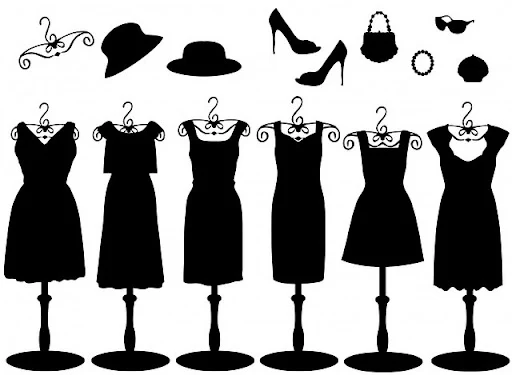How to dress in Greece – dress-code
"How to dress in Greece ?" is one question that comes up often from travelers. Well the truth is that there is no short answer to this question. There is not something like a formal dress code in Greece, but we can try to give you some tips on how to dress, so as to not look out of place when you are visiting Delphi and Greece.
Dressing as locals is not just a matter of respecting a dress code, but more a question of security.
Keep in mind that Greeks are very respectful of traditions and customs, which translates in the way they dress. This means there is no such thing as a Greek dress code, but rather imperceptible, tacit rules, which may remain unnoticed for the untrained eye.
The thing to know is that Greeks adapt the way they dress to the moment of the day, the occasion, and the site or place they are visiting. Showing respect also means that you dress up according to the level of the place or people you are visiting, even if there is no formal dress code mentioned. Not doing so may be interpreted as offensive or showing disrespect to the place and the other clients. It may also be interpreted as a sign that you expect poor service and you may well end up receiving that as a consequence! This is relatively rare, though; in most cases Greeks are just too polite to show any reaction or different treatment.
The same goes when you are invited at a (formal) dinner at a friend’s home. Of course, it all depends on the type of dinner you are invited to and the level of intimacy you have with your friends, but even close friends will interpret an effort to dress nicely as a mark of respect.
Some clothing combinations may also look funny to Greeks, like wearing white socks under trousers or wearing socks with sandals. Reversely, some pieces of clothing always require their complement, for example, closed shoes always need socks (except moccasin-style shoes or yachting shoes).For those of you who are looking for some hints, so as to not stick out in the crowd and become an obvious target for pick pocketers, muggers and beggars, here is a list with some "Do’s and Don’ts". Most of these rules are also valid not only in Greece, but in other European mediterrannean countries such as Italy, France, Spain and Portugal.
How to dress in Greece the Do’s
– in case of doubt it is always better to over-dress for a specific situation than the opposite. Remember that for Greeks, style and elegance is translated by the overall picture, NOT by some specific attires, such as a tie. Wearing a tie on a jeans or an unperfectly ironed shirt is worse than wearing no tie in a classy suit. The first thing Greeks will look at are your shoes and then the quality of the fabrics, rather than what they represent.
– Greek women always wear make-up and have their hair, eyebrows and nails done (especially toe nails), but they hardly wear perfume.
– you can wear jeans (even in more formal situations), as long as they are combined with an elegant jacket or stylish accessories. They should be well-fitting and stylish. Never ever wear a tie with jeans, though.
– for men, always wear socks in closed shoes. The only exception to this are moccasin-style shoes or yachting shoes, but even here they will usually wear a type of socks specifically adapted to this kind of shoes ("invisible" or very short socks).
– men wearing a suit should know that shirts without brest pockets and collar buttons are considered more elegant.
How to dress in Greece the Dont’s
(remember that in Greece everything is possible fashion-wise. These "dont’s" are only intended for travelers who prefer to remain “on the safe side”).
– avoid sweat suits or sports shoes in the city, except if you are doing sports. The only exception to this are very stylish, branded sports shoes, but these are usually not flashy and should always look VERY new.
– no tank tops or other shoulder-less clothing in churches or sacred places (monasteries). It is always a good idea to cover up your shoulders when entering a church. Entering a sacred place with sleeveless or shoulder-less clothing may be interpreted as an insult to the sacred.
– no oversized shirts or baggy trousers.
– no fanny packs or belt packs.
– no over-sized T-shirts, especially not those with big, flashy pictures on them.
– no extra short shorts for men (especially the sports type), unless you are heading to the beach or vacationing in a beach resort and even then prefer them longer (knee-level, bermuda shorts type). An absolute no-no are running shorts or wearing shorts in the evening ! Also avoid wearing socks with shorts.
– no flip-flops or thongs in the bigger cities
– no socks in sandals or open shoes
– no open shoes for men in the evening (unless, maybe, in a beach resort).
– a big NO-NO are white socks with trousers ! Socks should always be as discrete as possible, preferably black or blend in either with the color of the trousers or that of the shoes. White socks are for sports only!– no bright, flashy colors. Greeks do wear bright colors, but in specific combinations and not at all times.
Some colors that are typically very popular in some countries look very strange in Greece as colors for clothes, such as mustard yellow, petrol blue, bottle green and dull bordeaux red. In case of doubt and to remain on the safe side, prefer earthy tones, or black, marine blue, cream and white. Some red and other stronger colors are fine, but too much red, purple or flashy color combinations may soon look out of place.
Pastel colors such as lilac, pastel green, pastel rose and salmon are best reserved for the Summer. The only exception to this are all shades of beige, camel, broken white, ivory and cream white and grey which can be worn all year round.
-----This post is republished under license from theDelphiGuide.com, your guide for Delphi, the Navel of the Earth
✔ How to organize your holidays in Athens
Ferry to the islands: Book your ferry to to Santorini, Mykonos and other islands.
Hotels: Discover our selection with the best hotels and accommodation in Athens.
Tours and Activities: Explore the city with some amazing tours and activities.
Car rentals: Discover the the surroundings on your own by booking your car.










